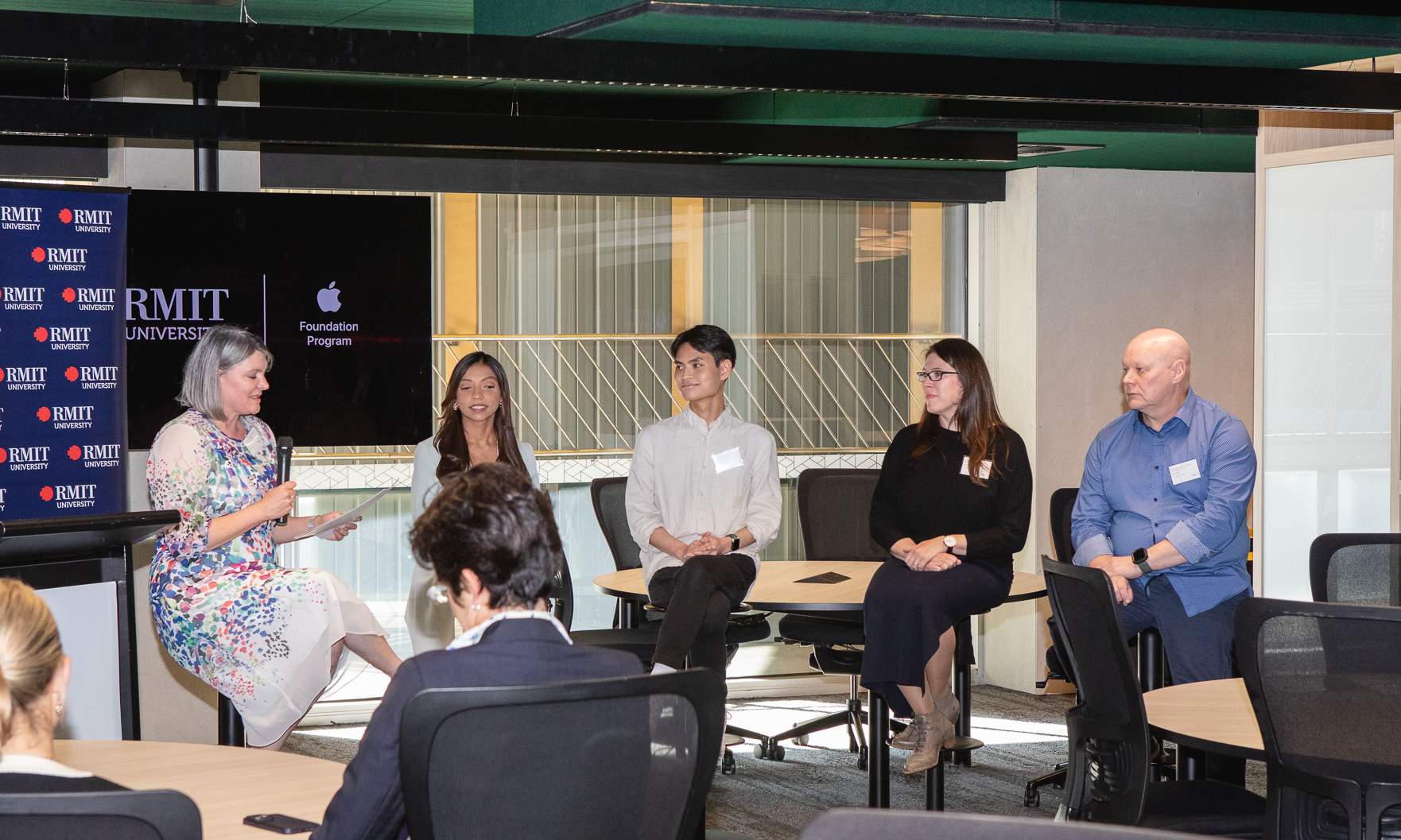First introduced in 2023, the Apple Foundation Program at RMIT is a four-week learning program where participants are introduced to the fundamentals of app development.
Working in teams, their aim is to design and pitch an app prototype that solves a real-world problem. With mentors, participants learn how to utilise the Apple ecosystem and products like Swift for Xcode and are introduced to UX/UI concepts like design thinking.
“I’ve always thought of app development as something incredibly challenging, but it turned out much easier with the help from the mentors,” said Mason Cao, a program alumnus.
“After the program, I realised I wanted to pursue app development full time.”
Mason was recently announced as a 2024 Apple Swift Student Challenge winner, a worldwide coding challenge run by Apple, where participants use their skills to create ideas that may be published on the app store for anyone to use.
“Looking back, the program provided a launchpad that eventually led me to win the Apple Swift Student Challenge 2024,” he reflected.
“I believe the goal of technology should be to embrace new changes and advancements, while also making sure it is accessible to everyone. The Apple Foundation Program at RMIT aligns with those values perfectly.”
Program provides skills-upgrade
For Dot Georgoulas, the path into the Apple Foundation Program at RMIT was different to Mason’s. She is mid-career and has over 25 years of design industry experience specialising in Communication Design, Branding, Exhibition Design, Design Strategy and UX/UI design.
Dot has worked in full-service design studios, tertiary design education, the museum cultural sector and most recently has been working in the Software as a Service technology industry.
Her passion for User Interface Design was ignited while working on a digital transformation project for one of Australia’s largest Museums. Her curiosity led to further studies in Human-centred design, Design thinking, UX/UI design before discovering the Apple Foundation Program at RMIT.
“As a designer learning app development, I thrived by being immersed in Apple technology, from Airdrop, Keynote, Human Interface Guidelines to Swift UI, Swift code, Swift playgrounds and Apple Developer tools,” she said.
“Through challenged-based learning, I enjoyed the collaboration and problem-solving opportunities during the development of our project, especially in the final week when consolidating the value of our idea and resolving the design in the lead up to delivering the final app pitch.”
“The Apple Foundation Program at RMIT provided me with the opportunity to learn about app development through inspiration, collaboration, research, design, problem solving, storytelling and coding while utilising my design experience and passion for creativity with technology.”





